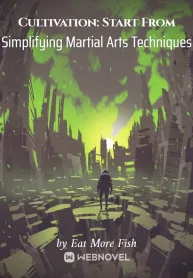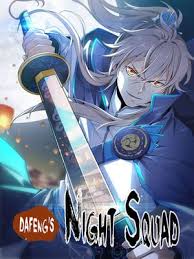Chapter 62 Back At New York Again
Poul Nielsen stepped off the ferry and onto the wooden planks of the Desbrosses Street ferry station. The salty, briny air of the harbor filled his lungs, as he looked around, taking in his surroundings.
The sun had just begun to set, casting a warm, golden glow over the bustling streets of Lower Manhattan. The sounds of horse-drawn carriages and the clanging of metal filled the air, as workers hurried to load and unload cargo from the nearby piers.
He scanned the bustling crowds, searching for Sam Insull, Russel's secretary. He spotted him across the street, waving his arm in the air. Poul smiled and quickened his pace, approaching him.
"Good day, Sir Nielsen. How was your journey to New York?" Sam inquired, his voice polite, though tinged with a hint of curiosity.
Poul's smile was wry as he replied, "It was much the same, though the sensation of traveling to New York alone felt quite different."
Sam hummed in understanding. "I see. Allow me to escort you to our ride. Mister Russel is eager to hear what you have promised him."
Together, Poul and Sam navigated the crowded streets, deftly weaving through the throngs of merchants, sailors, immigrants, and businessmen, as Sam led him to a waiting carriage. As they approached, the footman sprang to attention, smoothing down his suit and tugging at the brim of his top hat. With a courteous nod, he opened the door to the carriage, inviting Poul and Sam to board while deftly assisting Poul with his luggage.
Once settled inside, Poul and Sam sank into the plush seats. Sam tapped the ceiling of the carriage, signaling the coachman to depart, and the carriage rumbled through the busy streets of Lower Manhattan.
Poul remained silent, lost in thought as he propped his chin up with his hand, his eyes glued to the window as the city passed by in a blur of colors and motion. The buildings and streetscapes shifted and changed, a never-ending parade of sights and sounds that was both exhilarating and overwhelming.
Twenty minutes later, the carriage arrived at Pearl Street, the site of the first power plant in the world. The footman, who had been standing at the back of the carriage, jumped down from the footboard and opened the door for Poul and Sam.
Poul and Sam descended the carriage steps carefully and made their way to the ground, the excitement of the day ahead pulsing through their veins.
They strode towards the Pearl Street Station, the clack of their footsteps echoing through the cavernous space. The acrid scent of ozone filled the air, mixed with the tang of tobacco smoke.
As they passed by rows of humming generators, Poul saw engineers working on bulbs and electrical circuits, sparks flying as they skillfully manipulated the wires and fuses.
They soon reached a set of stairs, which they ascended, eventually arriving at a door marked "James Russel - Office". Poul paused for a moment, taking a deep breath, and Sam started knocking on the door.
"Enter," came a gruff voice from within.
Poul and Sam stepped inside, and Poul's gaze landed on the figure of James Russel, who was seated behind a desk, a cloud of smoke curling up from his cigar. The inventor's eyes flicked up and met Poul's, and for a moment, the room was silent.
"Well, well, well," Russel said finally, a grin spreading across his weathered face. "Poul Nielsen. I have been expecting your arrival. So, do you already have the blueprints and the processes for making an electric motor?" He paused for a moment and then continued. "I hope you do because some of my customers are already expecting it. The motor that you showed me piques their interest. Oh, take a seat first."
Poul sat in the chair that Russel indicated, Poul's heart pounding with nervous excitement. He pulled out a small leather folio from his briefcase, the blueprints, and technical details for the electric motor neatly arranged within.
"I have everything here, Mr. Russel," Poul said, his voice clear and confident. "Our engineers and I have been working tirelessly to perfect the design and the manufacturing process. I believe that with this formula, you'll be able to put the electric motor into production with lesser cost."
Russel's eyes narrowed as he studied the blueprints, his cigar clenched between his teeth. Poul watched his every movement, the silence stretching out between them until it became almost unbearable.
"Although I can read blueprints and understand what it entails, I want elaboration. Explain to me how the electric motor will be manufactured from start to finish."
Poul cleared his throat, preparing himself to explain the manufacturing processes of a direct current electric motor.
"To make a direct current electric motor, the first step is to construct the frame using cast iron, which provides a strong foundation. The frame is molded using sand casting. The next step is to create the shaft using steel and the bearings using brass. The third step involves making the commutator, which is a copper bar insulated with mica that is connected to the armature windings. The fourth step is making the armature winding by hand using copper wire that is coated with insulating material to prevent short-circuiting. The fifth step is creating the brush and brush holder assembly, which is made of graphite and holds the brushes in place. The individual components are then assembled into a complete motor using screws and connections that are either soldered or brazed. Finally, the motor is tested for defects, such as overheating or excessive vibration, before being shipped to customers. If any issues are found, they should be addressed before shipping. Failed motors can be recycled to make a new one to save the cost of course. Well, that's about it. Any questions?"
Russell hummed thoughtfully after listening to Poul's brief elaboration. "I have none because you already provided detailed explanations on each step," he said, feeling confident in his grasp of the process.
"I see," Poul replied with a small smile, "well if you have any further questions, feel free to ask. We are partners, after all, and the success of the electric motor means the success of electricity."
Russell nodded and considered Poul's offer for a moment before speaking. "Okay, I do have one question," he said, his tone eager. "Would you be on-site to oversee the production of the electric motors?"
"Of course," Poul replied without hesitation. "I must ensure that your workers are following the manufacturing processes strictly to prevent any unwanted accidents that may occur during production. I will be their guide for the entire month, and I believe that by the end of that time, your workers will be adept enough to build motors by themselves as a team."
Russell smiled, feeling reassured by Poul's confidence. "Your invention of a functioning electric motor is impressive," he said, his voice tinged with admiration. "To be able to produce work that is as strong as steam engines despite having smaller sizes is worth noting."
Poul's cheeks flushed with pride and humility as he listened to Russell's kind words. "Thank you, Russell. Well, you also deserve some praise. You are the first person to build the first functioning electric distribution system in the world. You built infrastructures such as power lines, sockets, and insulations, which is, you know, very uncommon at this time."
"I know, it's an expensive undertaking," Russel admitted, his voice low and earnest. "But I believe it will be worth it, as my vision for this country is to deliver electricity to every home in Avalonia using a direct current system."
Poul's brows furrowed with concern. "That's inspiring," he replied, his tone hesitant, "but don't you think direct current has limitations? Like how it can't go over a mile because of the power loss. Most parts of our country right now are empty spaces. Only alternating current can reach that distance thanks to its voltage being able to be stepped up and down."
Russel sighed, his expression thoughtful. "Yes, direct current does have limitations," he agreed. "But an alternating system is more dangerous than direct current due to its high voltages. In direct current, you can touch any part of the line and you'll be safe, but in alternating current, you will become the circuit and die instantly. Additionally, power is easier to control than AC because DC has a constant voltage level, making it well-suited for many electrical applications, such as lighting and small motors. Lastly, it is better suited for urban areas because buildings are close together."
Poul shook his head, still unconvinced. "But what about those who are in the rural areas? Don't they get to enjoy the wonders of electricity?"
"Of course, they will," Russel replied, his voice firm. "But not yet. I am still improving my system so that my electricity can reach long distances."
"With direct current?" Poul pressed, his skepticism palpable. "I don't think it will be possible, no matter how hard you try. Alternating current is the only solution for that."
Russel's expression hardened at Poul's words. "Well, if it were the only solution, then I would have done it a long time ago," he said, his tone biting. "Hmm... I think this concludes our meeting, Sir Nielsen. Thank you for coming all the way here."
Poul stood and shook Russel's hand, his mind whirring with thoughts. As he grasped Russel's hand, Poul couldn't help but think to himself, "I'll prove you wrong, Mister Russel. Just like your counterpart in my world, you chose the wrong horse."
The sun had just begun to set, casting a warm, golden glow over the bustling streets of Lower Manhattan. The sounds of horse-drawn carriages and the clanging of metal filled the air, as workers hurried to load and unload cargo from the nearby piers.
He scanned the bustling crowds, searching for Sam Insull, Russel's secretary. He spotted him across the street, waving his arm in the air. Poul smiled and quickened his pace, approaching him.
"Good day, Sir Nielsen. How was your journey to New York?" Sam inquired, his voice polite, though tinged with a hint of curiosity.
Poul's smile was wry as he replied, "It was much the same, though the sensation of traveling to New York alone felt quite different."
Sam hummed in understanding. "I see. Allow me to escort you to our ride. Mister Russel is eager to hear what you have promised him."
Together, Poul and Sam navigated the crowded streets, deftly weaving through the throngs of merchants, sailors, immigrants, and businessmen, as Sam led him to a waiting carriage. As they approached, the footman sprang to attention, smoothing down his suit and tugging at the brim of his top hat. With a courteous nod, he opened the door to the carriage, inviting Poul and Sam to board while deftly assisting Poul with his luggage.
Once settled inside, Poul and Sam sank into the plush seats. Sam tapped the ceiling of the carriage, signaling the coachman to depart, and the carriage rumbled through the busy streets of Lower Manhattan.
Poul remained silent, lost in thought as he propped his chin up with his hand, his eyes glued to the window as the city passed by in a blur of colors and motion. The buildings and streetscapes shifted and changed, a never-ending parade of sights and sounds that was both exhilarating and overwhelming.
Twenty minutes later, the carriage arrived at Pearl Street, the site of the first power plant in the world. The footman, who had been standing at the back of the carriage, jumped down from the footboard and opened the door for Poul and Sam.
Poul and Sam descended the carriage steps carefully and made their way to the ground, the excitement of the day ahead pulsing through their veins.
They strode towards the Pearl Street Station, the clack of their footsteps echoing through the cavernous space. The acrid scent of ozone filled the air, mixed with the tang of tobacco smoke.
As they passed by rows of humming generators, Poul saw engineers working on bulbs and electrical circuits, sparks flying as they skillfully manipulated the wires and fuses.
They soon reached a set of stairs, which they ascended, eventually arriving at a door marked "James Russel - Office". Poul paused for a moment, taking a deep breath, and Sam started knocking on the door.
"Enter," came a gruff voice from within.
Poul and Sam stepped inside, and Poul's gaze landed on the figure of James Russel, who was seated behind a desk, a cloud of smoke curling up from his cigar. The inventor's eyes flicked up and met Poul's, and for a moment, the room was silent.
"Well, well, well," Russel said finally, a grin spreading across his weathered face. "Poul Nielsen. I have been expecting your arrival. So, do you already have the blueprints and the processes for making an electric motor?" He paused for a moment and then continued. "I hope you do because some of my customers are already expecting it. The motor that you showed me piques their interest. Oh, take a seat first."
Poul sat in the chair that Russel indicated, Poul's heart pounding with nervous excitement. He pulled out a small leather folio from his briefcase, the blueprints, and technical details for the electric motor neatly arranged within.
"I have everything here, Mr. Russel," Poul said, his voice clear and confident. "Our engineers and I have been working tirelessly to perfect the design and the manufacturing process. I believe that with this formula, you'll be able to put the electric motor into production with lesser cost."
Russel's eyes narrowed as he studied the blueprints, his cigar clenched between his teeth. Poul watched his every movement, the silence stretching out between them until it became almost unbearable.
"Although I can read blueprints and understand what it entails, I want elaboration. Explain to me how the electric motor will be manufactured from start to finish."
Poul cleared his throat, preparing himself to explain the manufacturing processes of a direct current electric motor.
"To make a direct current electric motor, the first step is to construct the frame using cast iron, which provides a strong foundation. The frame is molded using sand casting. The next step is to create the shaft using steel and the bearings using brass. The third step involves making the commutator, which is a copper bar insulated with mica that is connected to the armature windings. The fourth step is making the armature winding by hand using copper wire that is coated with insulating material to prevent short-circuiting. The fifth step is creating the brush and brush holder assembly, which is made of graphite and holds the brushes in place. The individual components are then assembled into a complete motor using screws and connections that are either soldered or brazed. Finally, the motor is tested for defects, such as overheating or excessive vibration, before being shipped to customers. If any issues are found, they should be addressed before shipping. Failed motors can be recycled to make a new one to save the cost of course. Well, that's about it. Any questions?"
Russell hummed thoughtfully after listening to Poul's brief elaboration. "I have none because you already provided detailed explanations on each step," he said, feeling confident in his grasp of the process.
"I see," Poul replied with a small smile, "well if you have any further questions, feel free to ask. We are partners, after all, and the success of the electric motor means the success of electricity."
Russell nodded and considered Poul's offer for a moment before speaking. "Okay, I do have one question," he said, his tone eager. "Would you be on-site to oversee the production of the electric motors?"
"Of course," Poul replied without hesitation. "I must ensure that your workers are following the manufacturing processes strictly to prevent any unwanted accidents that may occur during production. I will be their guide for the entire month, and I believe that by the end of that time, your workers will be adept enough to build motors by themselves as a team."
Russell smiled, feeling reassured by Poul's confidence. "Your invention of a functioning electric motor is impressive," he said, his voice tinged with admiration. "To be able to produce work that is as strong as steam engines despite having smaller sizes is worth noting."
Poul's cheeks flushed with pride and humility as he listened to Russell's kind words. "Thank you, Russell. Well, you also deserve some praise. You are the first person to build the first functioning electric distribution system in the world. You built infrastructures such as power lines, sockets, and insulations, which is, you know, very uncommon at this time."
"I know, it's an expensive undertaking," Russel admitted, his voice low and earnest. "But I believe it will be worth it, as my vision for this country is to deliver electricity to every home in Avalonia using a direct current system."
Poul's brows furrowed with concern. "That's inspiring," he replied, his tone hesitant, "but don't you think direct current has limitations? Like how it can't go over a mile because of the power loss. Most parts of our country right now are empty spaces. Only alternating current can reach that distance thanks to its voltage being able to be stepped up and down."
Russel sighed, his expression thoughtful. "Yes, direct current does have limitations," he agreed. "But an alternating system is more dangerous than direct current due to its high voltages. In direct current, you can touch any part of the line and you'll be safe, but in alternating current, you will become the circuit and die instantly. Additionally, power is easier to control than AC because DC has a constant voltage level, making it well-suited for many electrical applications, such as lighting and small motors. Lastly, it is better suited for urban areas because buildings are close together."
Poul shook his head, still unconvinced. "But what about those who are in the rural areas? Don't they get to enjoy the wonders of electricity?"
"Of course, they will," Russel replied, his voice firm. "But not yet. I am still improving my system so that my electricity can reach long distances."
"With direct current?" Poul pressed, his skepticism palpable. "I don't think it will be possible, no matter how hard you try. Alternating current is the only solution for that."
Russel's expression hardened at Poul's words. "Well, if it were the only solution, then I would have done it a long time ago," he said, his tone biting. "Hmm... I think this concludes our meeting, Sir Nielsen. Thank you for coming all the way here."
Poul stood and shook Russel's hand, his mind whirring with thoughts. As he grasped Russel's hand, Poul couldn't help but think to himself, "I'll prove you wrong, Mister Russel. Just like your counterpart in my world, you chose the wrong horse."







